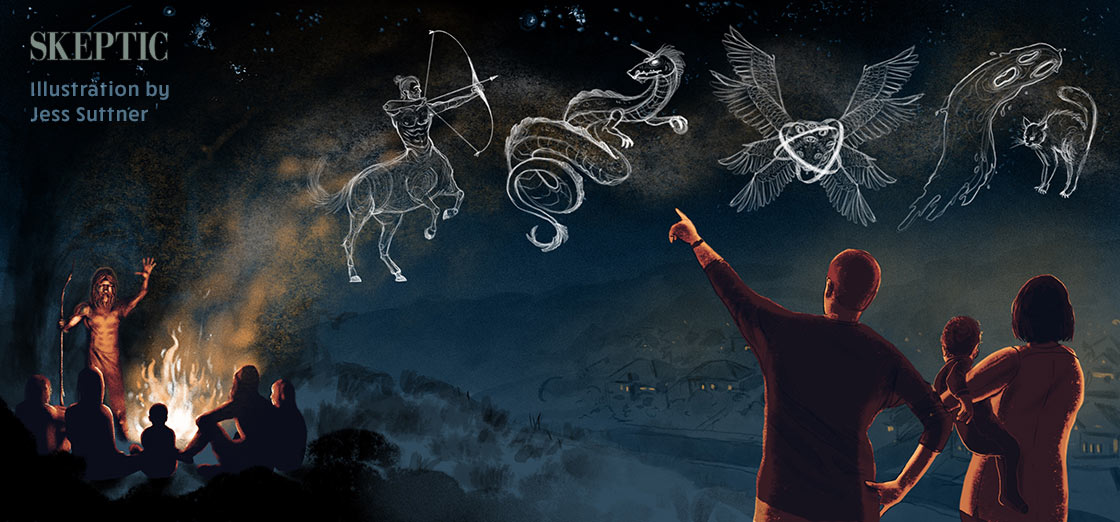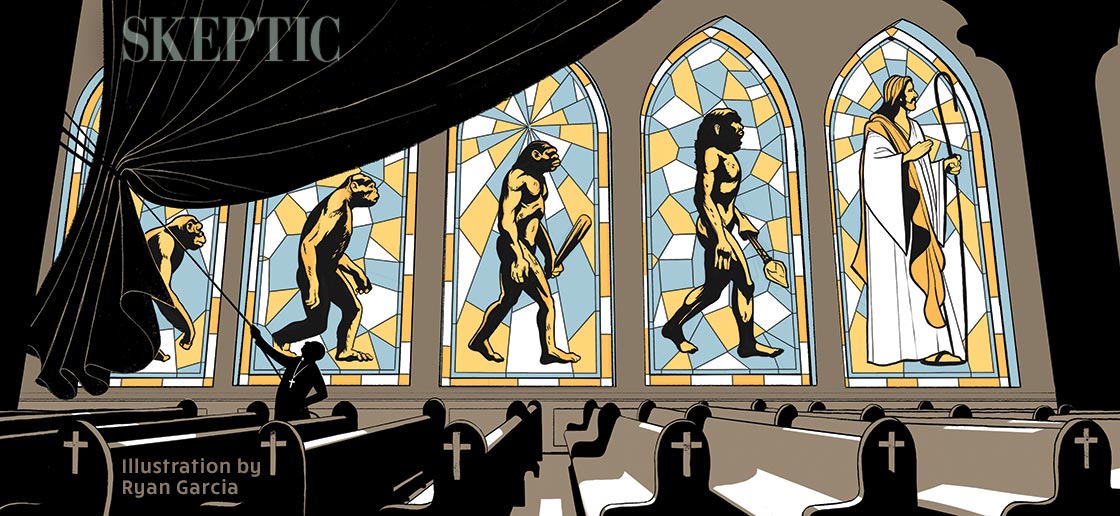fundamentalism

Science and religion present two paradoxes in the United States. On the one hand, the U.S. is the undisputed world leader in science. Yet, the U.S. is also the wealthy industrialized country with the most widespread skepticism about science, most notably regarding climate change, vaccines, and evolution. How can those two seemingly incompatible facts be reconciled? This article solves this paradox.

Long before science came of age in the Scientific Revolution of the 16th and 17th centuries, religion had been struggling to make sense of the world for millennia. Sometimes they got it right, but mostly they had no idea how the world works and had no systematic method to determine as much. This article explores the relationship between science and religion in terms of what was known back then and what is known now.

If you give Christians a choice between Jesus and Darwin by telling them that the theory of evolution means you have to be an atheist, they’re going to pick Jesus every time. In this article, Larry Arnhart argues that Christians should accept the theory of evolution not only because it’s true but also that it does not mean they have to give up their religion.
In this week’s eSkeptic, Tim Callahan reviews R. D. Gold’s book entitled Bondage of the Mind: How Old Testament Fundamentalism Shackles the Mind and Enslaves the Spirit.
Over the past decade the relationship of science and religion has been under close scrutiny, with people on both sides developing various positions on how two of the most powerful institutions in the today’s world — one ancient, one modern — can co-exist. And as we have seen in the news coming out of the Middle East, the relationship of religion and politics has also taken center stage, as people of faith and party on both sides square off in…
In this week’s eSkeptic, Stephen Hawking says that the Pope told him not to study the beginning of the universe; David Ludden reviews The Psychology of Religious Fundamentalism by Ralph W. Hood, Jr., Peter C. Hill, and W. Paul Williamson.











